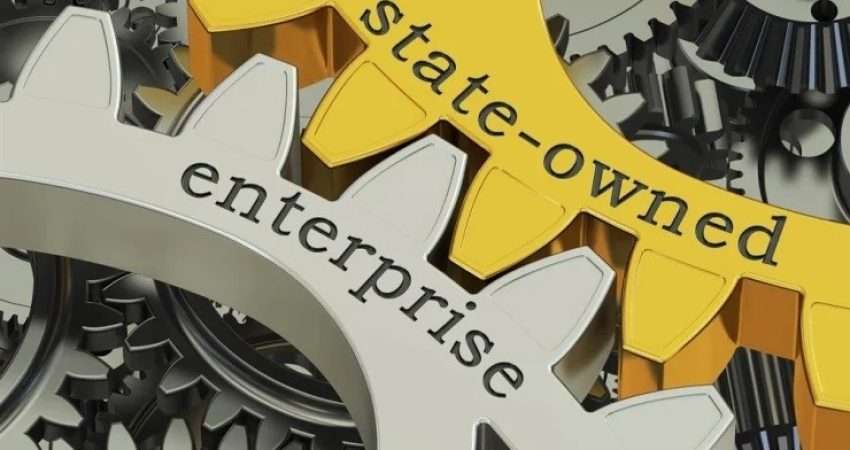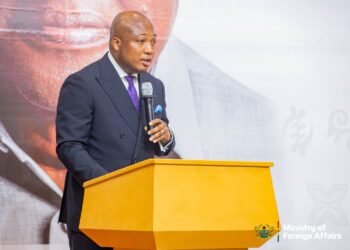In recent discussions surrounding State-Owned Enterprises (SOEs) in Ghana, Prof. Stephen Kwaku Azar Asare, a Democracy and Development Fellow at CDD-Ghana, raised critical concerns over the extravagant executive compensation of some SOE managing directors.
These perks, which cover a range of financial, housing, and medical benefits, have sparked debate about their justification, particularly when the companies themselves are underperforming.
One such benefits package for an MD of an SOE includes a salary of GH₵ 840,000 annually, with a 15% yearly upward review. In addition to this salary, the MD enjoys a variety of allowances, including clothing, entertainment, and professional allowances.
The housing package includes official accommodation with maintenance and repairs covered up to GH₵ 200,000, and a generous personal assistance package that offers domestic help, a security officer, and a gardener—all with significant cash allowances for those who prefer not to use the services directly.
Medical benefits extend to the MD’s spouse and up to five children, with comprehensive accident and life insurance coverage.
Additionally, transportation perks include a company car with full maintenance, fuel allowances, and even the option to purchase the vehicle upon contract termination.
Other travel and leisure benefits include 30 working days of paid vacation each year, with a significant budget allocated for international travel and familiarization tours.
While these benefits may appear justifiable for a high-performing enterprise, Prof. Asare highlighted a critical concern about what occurs when an SOE is struggling, failing to meet its core objectives, or relying on government bailouts to remain operational.
This is where the concept of OMAMPAM—Outcome-based Management and Performance Accountability Mechanism—becomes critical.
According to Prof. Asare, OMAMPAM seeks to directly link executive compensation to the performance of SOEs, ensuring that only executives overseeing successful companies enjoy the full range of luxurious benefits.
This framework, according to Asare, is necessary to ensure that public resources are not squandered on excessive executive perks while the SOE faces financial distress.

“Performance-Based Compensation; Executive benefits should be directly tied to KPIs, including profitability, efficiency, and service delivery improvements.
“SOEs must adopt a pay-for-performance structure where bonuses, travel perks, and luxury benefits are contingent on financial and operational success”.
Prof. Stephen Kwaku Azar Asare
Asare further proposes the introduction of a Public Performance Dashboard, a real-time, publicly accessible platform to track the financial performance and operational efficiency of SOEs.
This dashboard would allow stakeholders and citizens to monitor whether an SOE is meeting its targets before approving any high-value executive benefits.
Transparency in SOE performance would ensure that resources are used effectively, and executives are held accountable.
Executive Compensation Linked to SOE Performance
Moreover, Prof. Stephen Kwaku Azar Asare noted that OMAMPAM advocates for an annual review of executive compensation in alignment with the SOE’s financial status.
Accordingly, he indicated that if an SOE is found to be underperforming or operating at a loss, the review would recommend reducing or even suspending executive perks until the company improves its operations.
In this way, public funds would not be wasted on executives who are not meeting expectations.

Another crucial feature of OMAMPAM is the establishment of an independent oversight committee that would assess the performance of SOE executives based on predefined benchmarks.
Currently, the State Interests and Governance Authority (SIGA) is tasked with overseeing SOE operations, but Asare argues that SIGA in its current format lacks the independence required to ensure accountability.
According to Prof. Asare, the new committee would focus solely on corporate governance, free from political influence, ensuring that executive benefits are tied to the performance of the company, not political connections.
“Executive benefits in SOEs should not be treated as entitlements but as rewards for performance. OMAMPAM ensures that executive privileges are earned, not granted by default.
“If an SOE is thriving and meeting all KPIs, generous executive compensation can be justified. But when an SOE is struggling, wasteful expenditures on luxury perks must be eliminated”.
Prof. Stephen Kwaku Azar Asare
As such, Asare stressed that OMAMPAM aims to reduce the political influence in SOEs, moving away from a system where executives are appointed based on political connections rather than their ability to drive company success.
The goal is to run SOEs as commercial enterprises, focusing on profitability and efficiency, not as political machines that reward loyalty with lavish perks.
Accordingly, Prof. Asare emphasized that the implementation of OMAMPAM would mark a critical shift in the management of SOEs in Ghana, ensuring that executive benefits are directly tied to the success or failure of the company.
This model would incentivize executives to meet performance targets and make sure that resources are spent wisely, contributing to the overall efficiency and accountability of SOEs.
Exciting times may be ahead for the public sector if this new model is adopted. It’s time to make executive compensation and perks in Ghana’s SOEs more transparent, performance-based, and accountable to the people.
READ ALSO: Mikki Osei Berko on Misconceptions About Ambassadorial Deals


















